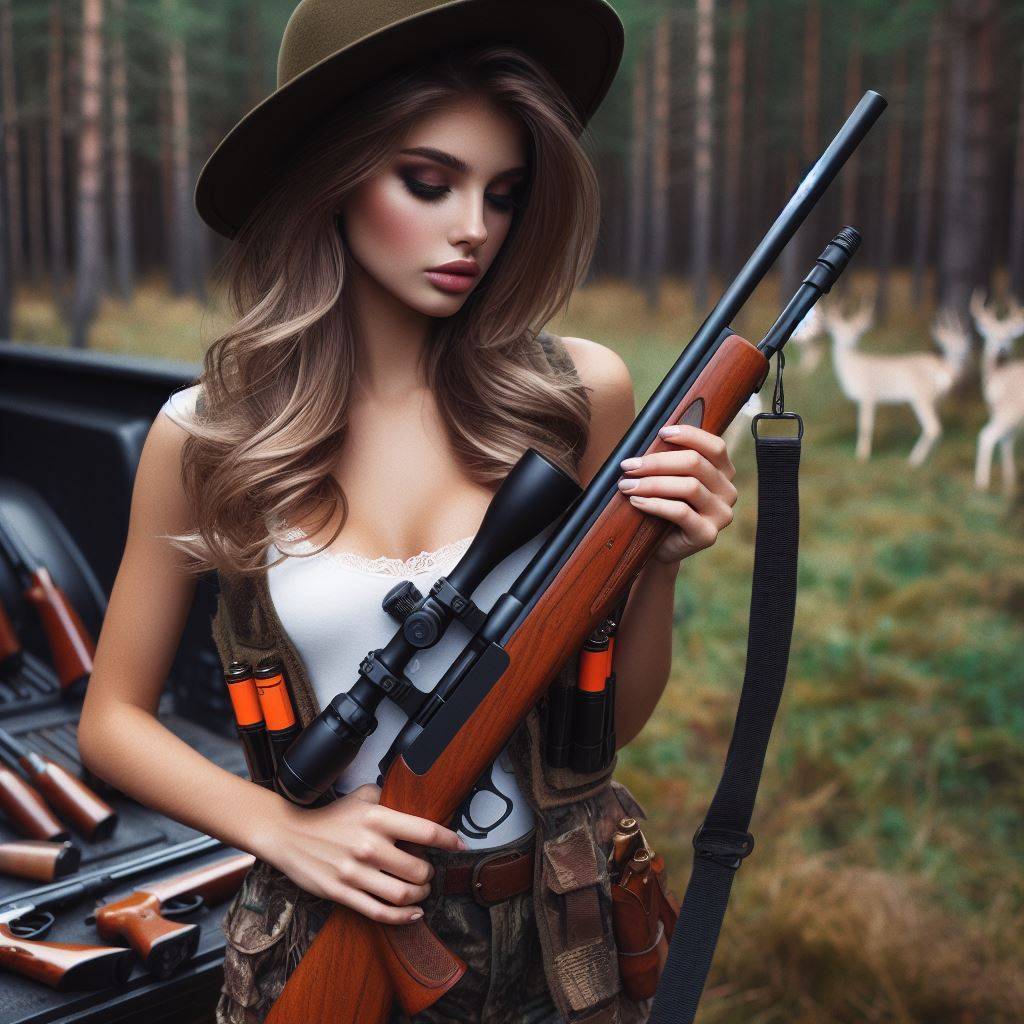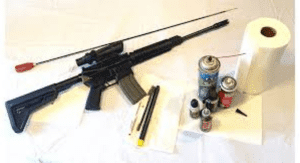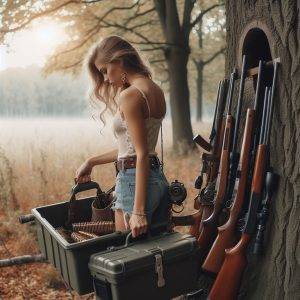When it comes to hunting, selecting the right firearm is crucial for a successful and enjoyable experience. Hunters must carefully consider various factors to ensure they have the most suitable weapon for their needs. In this comprehensive guide, we will delve into the essential aspects you should check before choosing a firearm for hunting. From understanding the type of game you’re pursuing to evaluating the gun’s caliber and action, we’ll cover it all.
Table of Contents
Understanding Your Quarry:
Before diving into the technical details of firearms, it’s imperative to understand the game you’ll be hunting. Different animals have different behaviors and require different approaches. Whether you’re after deer, elk, or waterfowl, the choice of firearm should align with the specific characteristics of your prey.
For instance, stalking a deer in thick woods demands a different set of considerations compared to hunting waterfowl in open marshes. The agility required for the former might favor a lighter, more maneuverable firearm, while the latter may necessitate a longer-range weapon.
Consider the Terrain:
Terrain plays a pivotal role in your choice of firearm. Hunters traversing diverse landscapes need a weapon that adapts to different environments. Shotguns, for example, are versatile choices suitable for both open fields and dense woods. On the other hand, a high-powered rifle might be more appropriate for long-range shots in open areas.
Imagine yourself on a hunt, navigating through various terrains – a shotgun’s flexibility would be your best friend in this scenario. On the other hand, a specialized rifle might be ideal for those engaging in long-distance pursuits.
Caliber Matters:
The caliber of a firearm is a crucial factor that directly influences its performance. Hunters should carefully consider the caliber based on the game they intend to pursue. Whether it’s a small game like rabbits or larger prey like elk, the right caliber ensures ethical and efficient kills.
Picture yourself tracking a majestic elk. A .30-06 Springfield rifle might be the perfect companion, offering the necessary power and accuracy for larger game. On the other hand, for smaller game like quail, a 20-gauge shotgun could provide the precision needed.
Action Types: Bolt, Semi-Auto, or Lever?
The action type of a firearm can significantly impact your hunting experience. Each type has its own set of advantages and disadvantages. Bolt-action rifles are known for their reliability and accuracy, making them a popular choice for precision shots. Semi-automatic firearms offer rapid follow-up shots, while lever-action rifles provide a classic and reliable design.
Consider a scenario where a swift follow-up shot is necessary. A semi-automatic shotgun could be the game-changer, giving you the speed required for those fast-moving targets. Alternatively, if you prefer the elegance of tradition, a lever-action rifle might be your weapon of choice.
Weight and Comfort:
The weight of a firearm can significantly impact your hunting experience. Hunters often find themselves traversing challenging terrains, and a heavy gun can quickly become a burden. Consider a firearm that strikes the right balance between weight and performance, ensuring comfort during extended hunting trips.
Envision a long day in the field, moving through rough terrain. A lightweight firearm like a composite stock bolt-action rifle could be your ally, providing the necessary durability without compromising on comfort.
Legal Considerations:
Understanding and adhering to local and federal regulations is paramount when choosing a firearm for hunting. Different regions have specific rules regarding caliber, magazine capacity, and hunting seasons. Ensure that your chosen firearm complies with all legal requirements to avoid any legal repercussions.
Picture this: You’re planning a hunt in a different state, and regulations regarding firearm specifications vary. Checking with local wildlife agencies and understanding the legal nuances can save you from unnecessary complications.
Scope it Out:
The choice of optics can significantly enhance your hunting accuracy. Scopes come in various magnifications and reticle types, catering to different hunting scenarios. Hunters must carefully select a scope that complements their firearm and aligns with their hunting style.
Imagine aiming at a distant target without a proper scope – a challenging feat indeed. A high-quality scope can make all the difference, providing clear visibility and accuracy, especially in situations where precision is paramount.
Reliability and Durability:
Hunting often involves exposure to the elements, and your firearm must withstand varying weather conditions. Reliability and durability are non-negotiable factors. A reliable firearm ensures that your shot doesn’t falter when it matters the most, while durability ensures the gun withstands the wear and tear of the hunting environment.
Picture yourself on a hunt during unpredictable weather. A durable firearm like a stainless steel bolt-action rifle can withstand the elements, ensuring your weapon remains functional in challenging conditions.
Ergonomics and Fit:
The ergonomics of a firearm contribute to the overall shooting experience. A well-designed gun should feel comfortable in your hands and shoulders. Hunters should pay attention to the fit of the firearm, ensuring it aligns with their body mechanics for improved accuracy and reduced fatigue.
Envision a situation where you spot your target, and a comfortable, well-fitted firearm allows for a quick and precise shot. The ergonomics of the gun can make your hunting experience more enjoyable and successful.
Final Thoughts:
Choosing the right firearm for hunting is a decision that goes beyond the aesthetics of the gun. It involves a thoughtful consideration of various factors, from the type of game you’re pursuing to the environmental conditions you’ll encounter. Each element contributes to the overall success and enjoyment of your hunting experience.
The journey of selecting a firearm for hunting is as exciting as the hunt itself. Hunters should embark on this process with a thorough understanding of their needs and preferences. By considering the game, terrain, caliber, action type, weight, legal aspects, optics, reliability, durability, and ergonomics, you ensure that your chosen firearm becomes an extension of your hunting prowess.
Frequently Asked Questions (FAQs) About Choosing a Firearm for Hunting
Q1: What factors should I consider when choosing a firearm for hunting?
A1: When selecting a firearm for hunting, consider factors such as the type of game you’ll be pursuing, the terrain you’ll be navigating, the firearm’s caliber, action type, weight, and legal requirements. Each of these aspects plays a crucial role in determining the most suitable weapon for your hunting needs.
Q2: How does the caliber of a firearm impact my hunting experience?
A2: The caliber of a firearm directly affects its performance, influencing the size and power of the ammunition. It’s essential to choose a caliber that aligns with the game you’ll be hunting. Larger calibers are suitable for bigger game like elk, while smaller calibers may be preferable for smaller game such as rabbits or quail.
Q3: What is the significance of the action type in a hunting firearm?
A3: The action type, whether bolt-action, semi-automatic, or lever-action, influences the firearm’s functionality. Bolt-action rifles are known for their accuracy, semi-automatics provide rapid follow-up shots, and lever-action rifles offer a classic design. The choice depends on your hunting style and the specific demands of your chosen game.
Q4: How important is the weight of a hunting firearm?
A4: The weight of a firearm can impact your comfort and mobility during a hunt. A balance between weight and performance is crucial. Lightweight firearms, like those with composite stocks, are ideal for hunters traversing challenging terrains, ensuring a comfortable and enjoyable hunting experience.
Q5: Are there legal considerations I should be aware of when choosing a hunting firearm?
A5: Yes, adhering to local and federal regulations is essential. Different regions have specific rules regarding caliber, magazine capacity, and hunting seasons. Before purchasing a firearm, it’s crucial to research and ensure that your chosen weapon complies with all legal requirements to avoid any legal issues during your hunting adventures.



